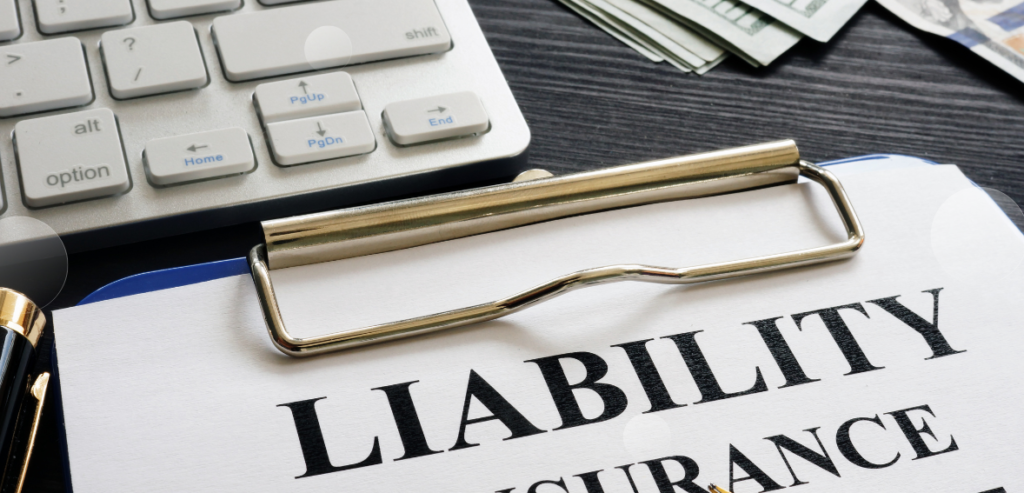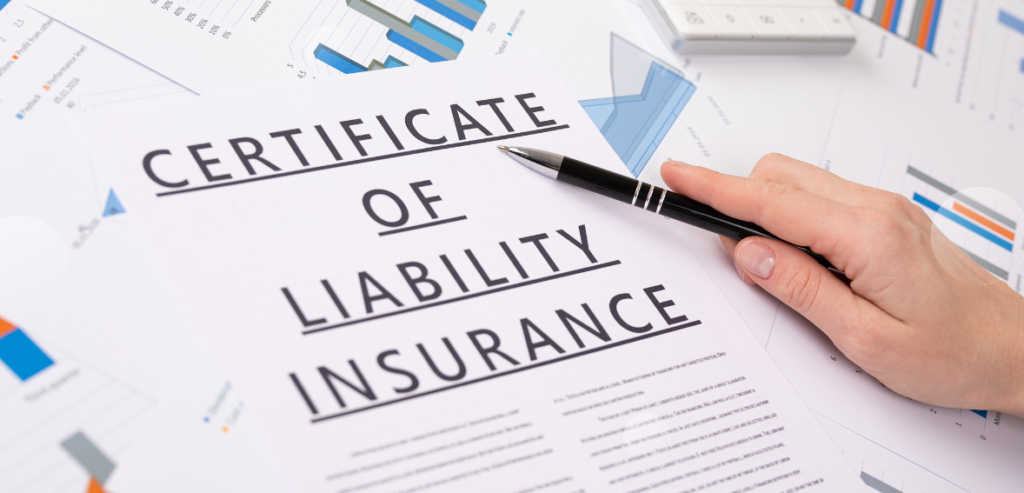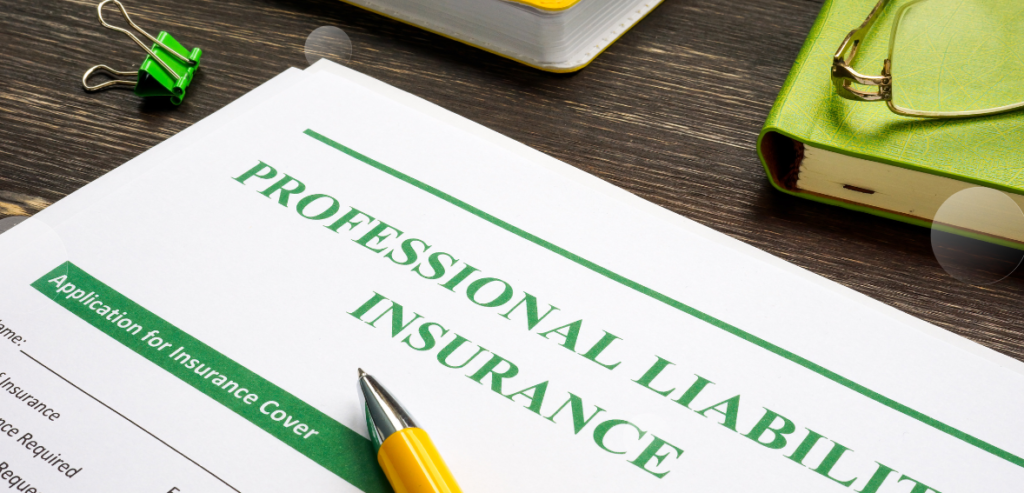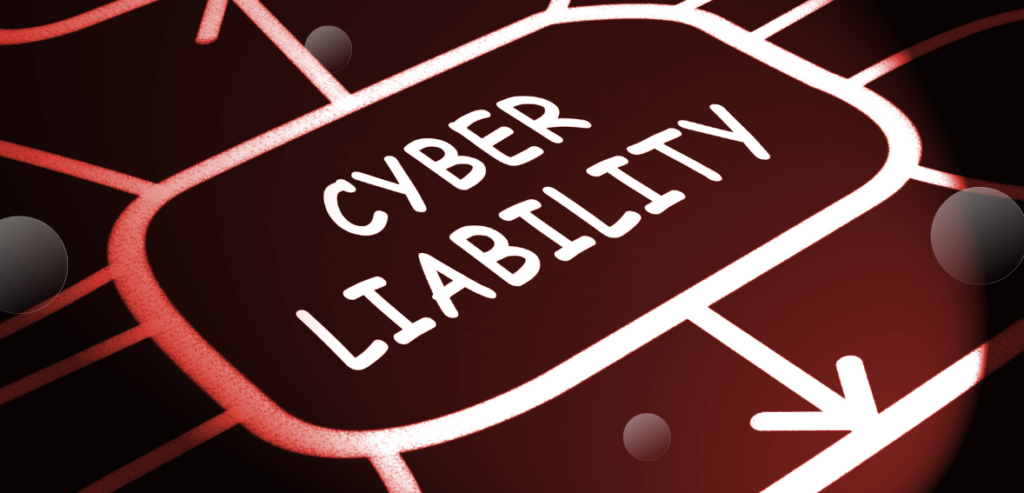As a small business owner, navigating the world of insurance can be overwhelming. With countless providers and policies to choose from, finding the right business liability insurance coverage may seem like a daunting task. However, fear not, for this guide is here to simplify the process for you. In the following pages, we will provide you with all the information you need to make an informed decision. From understanding the importance of business liability insurance to identifying the right providers and policies for your specific needs, we have got you covered. So let’s dive in and equip you with the knowledge to secure the best business liability insurance for your small business.
What is a Business Liability Insurance?
Business liability insurance, also known as commercial liability insurance, is a type of insurance coverage designed to protect businesses from financial losses resulting from legal claims made against them. It provides coverage for various liabilities that a business may face, like bodily injury, personal injury, property damage, and advertising injury.
Liability insurance is essential because it helps shield businesses from the potentially devastating costs associated with lawsuits and legal claims. In the event of an accident, injury, or damage caused by business operations or products, liability insurance can cover legal fees, court costs, settlements, and judgments, up to the policy’s limits.
There are different types of liability insurance policies available, including general liability insurance, professional liability insurance (also known as errors and omissions insurance), product liability insurance, and cyber liability insurance, among others. The specific type and amount of coverage needed depend on the nature of the business, its size, industry, and the potential risks it faces.

By securing business liability insurance, companies can have peace of mind knowing they have financial protection against unforeseen events and legal claims, allowing them to focus on their operations and growth without worrying about potential legal and financial consequences.
Why is Liability Business Insurance Important?

Liability business insurance is of paramount importance for several reasons. Firstly, it protects businesses from potential financial ruin by covering the costs associated with legal claims and lawsuits. In today’s litigious society, even a single lawsuit can have a substantial impact on a business’s finances. Liability insurance provides coverage for legal fees, court costs, settlements, and judgments, ensuring that businesses can navigate such challenges without significant financial strain.
Secondly, liability insurance enhances the credibility and trustworthiness of a business. Clients, customers, and partners often require proof of insurance before entering into contracts or collaborations. Having liability insurance demonstrates that a business takes its responsibilities seriously and is prepared to handle any potential liabilities that may arise.
Furthermore, liability insurance promotes a sense of security and peace of mind for business owners. It allows them to focus on their core operations and growth strategies without constant worry about unexpected accidents, injuries, or damages that could result in expensive legal consequences.
Overall, liability business insurance serves as a protective shield, safeguarding businesses from unforeseen events and providing them with the necessary resources to handle legal claims effectively. It is a proactive measure that enables businesses to mitigate risks, protect their assets, and ensure their long-term stability and success.
Types of Liability Business Insurance
Liability business insurance comes in various forms, each designed to address specific risks and exposures faced by businesses. Understanding the different types of liability insurance can help you choose the right coverage for your specific needs. Let’s explore the most common types:

General Liability Insurance
General liability insurance, often referred to as commercial general liability (CGL) insurance, is a foundational coverage for businesses. It protects against claims of bodily injury, property damage, and personal injury. General liability insurance covers a wide range of situations, including slip-and-fall accidents on your premises, damage caused by your products or services, and libel or slander claims.
This type of insurance is crucial for businesses of all sizes and industries, as accidents and lawsuits can happen to anyone. General liability insurance offers financial protection by covering legal defense costs, settlements, and judgments. It is typically the starting point for most businesses when it comes to liability insurance.
Professional Liability Insurance
It is also called errors and omissions (E&O) insurance, is essential for businesses that provide professional services or advice. It protects against claims of negligence, errors, or omissions that result in financial losses for clients. Professional liability insurance is commonly carried out by professionals such as lawyers, doctors, consultants, accountants, and architects.
This type of insurance helps cover legal expenses, including defense costs, settlements, and judgments. Professional liability insurance not only provides financial protection but also enhances the reputation and credibility of businesses by demonstrating their commitment to delivering quality services.

Product Liability Insurance
This type of insurance is crucial for businesses that deal in manufacturing, distributing, or selling physical products. It protects against claims that occur due to property or injury damage caused due to defective products. Even with stringent quality control measures in place, product defects can occur, leading to customer injuries or property damage.
Product liability insurance covers legal costs associated with product liability claims, including defense expenses, settlements, and judgments. It provides financial protection against potential lawsuits and ensures that businesses can handle the costs of product-related accidents or defects.
Cyber Liability Insurance
In today’s digital age, cyber liability insurance has become increasingly important. It provides coverage for businesses in the event of data breaches, cyber-attacks, or other cyber incidents. Cyber liability insurance helps mitigate the financial impact of data breaches, including costs associated with notifying affected individuals, credit monitoring, legal fees, and regulatory fines.
This type of insurance also covers expenses related to forensic investigations, public relations efforts, and any potential legal actions resulting from cyber incidents. Cyber liability insurance is crucial for businesses that handle sensitive customer data, as it helps protect against the financial repercussions of cyber threats.

Employment Practices Liability Insurance
Employment practices liability insurance (EPLI) safeguards businesses against claims made by employees regarding employment-related issues. This can include claims of wrongful termination, discrimination, harassment, or retaliation. EPLI coverage provides financial protection by covering legal fees, settlements, and judgments associated with such claims.
As employment-related lawsuits can be costly, EPLI is essential for businesses of all sizes to protect their assets and reputations. It offers a safety net and helps businesses navigate potential legal challenges related to employment practices.
Directors and Officers Liability Insurance
Directors and officers liability insurance (D&O) provides coverage for the personal liability of directors and officers of a company. It protects them against claims brought by shareholders, employees, customers, or regulatory bodies alleging mismanagement, breach of fiduciary duty, or negligence in decision-making.
D&O insurance covers legal defense costs, settlements, and judgments. It helps attract qualified directors and officers by providing them with a level of protection and mitigating personal financial risks associated with their roles.
Umbrella Liability Insurance
Umbrella liability insurance acts as an additional layer of coverage above the limits of other liability policies, such as general liability or professional liability insurance. It provides higher coverage limits, offering increased financial protection against catastrophic events and large lawsuits that exceed the primary policy limits.
Umbrella insurance is particularly beneficial for businesses that face significant liability risks or have high-value assets to protect. It helps ensure that businesses are adequately covered in case of severe accidents, injuries, or damages.
Choosing the Right Liability Insurance Coverage
Selecting the appropriate liability insurance coverage depends on factors such as the nature of your business, industry, size, and specific risks you face. Consulting with an insurance professional or broker can be immensely helpful in determining the appropriate coverage types and limits for your business.
By understanding the various types of liability insurance available, you can make informed decisions to protect your business from potential risks and liabilities. Remember, each business is unique, so tailor your coverage to suit your specific needs to ensure comprehensive protection and peace of mind.
Factors to Consider While Choosing Business Liability Insurance
When choosing liability business insurance, several important factors should be considered to ensure you select the right coverage for your specific needs. By carefully evaluating these factors, you can make an informed decision and obtain comprehensive protection for your business. Let’s explore the key factors to consider:
Business Type and Industry
The nature of your business and the industry you operate in play a significant role in determining the appropriate liability insurance coverage. Different industries have unique risks and exposures, and certain coverage types may be more relevant than others. For example, a manufacturing business may require product liability insurance, while a professional service provider may prioritize professional liability insurance. Assess your industry-specific risks to identify the types of coverage that align with your business activities.
Risk Assessment
Conducting a thorough risk assessment is crucial to identify potential liabilities your business may face. Consider the specific risks associated with your operations, products/services, premises, and interactions with clients or customers. This assessment will help you understand the types and levels of coverage needed to mitigate those risks effectively. Engaging with insurance professionals or risk management consultants can provide valuable insights during this process.
Coverage Limits
Carefully evaluate the coverage limits offered by different insurance policies. The coverage limits should be sufficient to protect your business from potential liabilities. Assess the value of your assets, potential legal costs, and worst-case scenarios to determine the appropriate coverage limits. Keep in mind that inadequate coverage limits can leave your business exposed to significant financial risks.
Policy Exclusions and Limitations
Review the policy exclusions and limitations to understand what is not covered by the insurance policy. Some policies may have specific exclusions for certain risks or circumstances. It is essential to be aware of these exclusions to assess any gaps in coverage and consider additional policies or endorsements to address those gaps.
Deductibles and Premiums
Consider the deductibles and premiums associated with the insurance policy. A deductible is the amount you must pay out of pocket before the insurance coverage kicks in. Assess your budget and risk tolerance to determine the appropriate deductible amount. Additionally, compare the premiums offered by different insurance providers to ensure that you are getting competitive rates for the coverage provided.
Insurance Provider Reputation
Evaluate the reputation and financial stability of the insurance provider. Consider factors such as the provider’s claims handling process, customer service track record, and overall financial strength. A reliable and reputable insurance company will offer prompt and efficient claims support when you need it most.
Additional Coverages and Endorsements
Assess whether the insurance policy offers additional coverages or endorsements that are relevant to your business. These may include coverage for cyber liability, employment practices liability, or directors and officers liability. Depending on your business’s specific needs, these additional coverages can provide valuable protection beyond the basic liability coverage.
Legal and Regulatory Requirements
Ensure that you comply with any legal or regulatory requirements pertaining to liability insurance in your industry or jurisdiction. Certain industries may have specific insurance requirements, such as minimum coverage limits or types of coverage. Familiarize yourself with these requirements to avoid any compliance issues.
Seek Professional Advice
Seeking guidance from insurance professionals, brokers, or consultants can provide valuable insights and help you navigate the complex landscape of liability insurance. These experts can assess your unique business needs, provide tailored recommendations, and assist in obtaining the most suitable coverage.
By carefully considering these factors, you can make an informed decision when choosing liability business insurance. Remember that your insurance needs may evolve over time, so it’s essential to regularly review your coverage to ensure that it aligns with your business’s changing risks and requirements.
Benefits of Liability Business Insurance for Small Businesses
Liability business insurance offers several benefits for small businesses. Here are some key advantages:
Financial Protection
Liability insurance provides financial protection for small businesses in case of lawsuits or legal claims. The costs associated with legal defense, settlements, and judgments can be significant and potentially devastating for a small business. Liability insurance helps cover these expenses, ensuring that the financial impact of legal liabilities is mitigated.
Lawsuit Coverage
Small businesses are vulnerable to lawsuits, even if they take precautions to operate safely and ethically. Liability insurance offers coverage for a range of potential claims, like bodily injury, product defects, property damage, advertising injuries, and professional errors. By having liability insurance, small businesses can be prepared to address these claims and protect their assets.
Credibility and Trust
Having liability insurance enhances the credibility and trustworthiness of a small business. Clients, customers, and partners often look for proof of insurance before engaging in business relationships. Having liability coverage demonstrates that a business is responsible and prepared to handle potential liabilities. It can give peace of mind to stakeholders and contribute to building a positive reputation.
Business Continuity
A lawsuit or legal claim can disrupt the normal operations of a small business. It can drain resources, divert attention from core activities, and potentially lead to financial distress. Liability insurance helps mitigate these risks by providing the necessary financial support to navigate legal challenges. It allows small businesses to focus on their operations and continue serving their customers without the fear of financial ruin.
Risk Mitigation
Liability insurance enables small businesses to mitigate risks effectively. Businesses can protect their assets and preserve their financial stability by transferring potential liabilities to the insurance company. This risk mitigation strategy allows entrepreneurs to focus on business growth and expansion, knowing they are protected from unforeseen legal and financial consequences.
Peace of Mind
Small business owners often face numerous challenges and uncertainties. Having liability insurance provides peace of mind by reducing the potential financial burden associated with legal claims. It offers reassurance that the business is protected and can handle unexpected events. This peace of mind allows small business owners to concentrate on running their operations with greater confidence and less worry.
Compliance with Contracts and Regulations
Liability insurance is often a requirement in contracts with clients, vendors, landlords, or lenders. By having liability coverage, small businesses can fulfill these contractual obligations, ensuring smooth business transactions. Additionally, certain industries or regulatory bodies may mandate liability insurance for businesses to operate legally. Compliance with such requirements is crucial for small businesses to avoid penalties or disruptions.
In summary, liability business insurance provides small businesses with vital financial protection, credibility, and peace of mind. It safeguards businesses from potential legal liabilities, covers the costs of lawsuits, and helps maintain business continuity. By mitigating risks, complying with contractual and regulatory obligations, and enhancing the overall stability of the business, liability insurance plays a crucial role in the long-term success and growth of small businesses.
Final Words
In conclusion, securing liability business insurance is an essential step for small businesses to protect themselves from potential financial risks and legal liabilities. By understanding the different types of liability insurance available and considering factors such as business type, industry, coverage limits, and policy exclusions, small business owners can make informed decisions to ensure comprehensive coverage. The benefits of liability insurance for small businesses are significant, including financial protection, credibility, business continuity, risk mitigation, compliance with contracts and regulations, and peace of mind. With liability insurance in place, small businesses can navigate potential legal claims, focus on their core operations, and confidently pursue growth opportunities. By prioritizing liability insurance, small businesses can safeguard their assets, reputation, and long-term success.
Frequently Asked Questions (FAQs)
What is the difference between general liability and professional liability insurance?
General liability insurance covers claims of bodily injury, property damage, and personal injury, while professional liability insurance (also known as errors and omissions insurance) focuses on claims of negligence, errors, or omissions related to professional services.
Is liability insurance mandatory for small businesses?
The requirement for liability insurance varies depending on factors such as the industry, location, and contractual obligations. While some industries or contracts may mandate liability insurance, it is generally considered a wise investment to protect small businesses from potential financial losses due to lawsuits or legal claims.
What does liability insurance typically not cover?
Liability insurance typically does not cover intentional acts, criminal acts, or punitive damages. It is essential to review the policy exclusions and limitations to understand what is specifically excluded from coverage.
How much liability coverage do I need for my small business?
The amount of liability coverage needed depends on factors such as the size of your business, industry, and potential risks. It is advisable to assess the value of your assets and the types of liabilities you may face and consult with an insurance professional to determine appropriate coverage limits.
Can liability insurance protect my business against cyberattacks?
While general liability insurance may not cover cyber-related risks, specialized cyber liability insurance can provide coverage for data breaches, cyber-attacks, and related expenses. It is important to consider cyber liability insurance if your business handles sensitive customer information or relies heavily on digital systems.
How can I save money on liability insurance premiums?
There are several ways to reduce liability insurance premiums potentially. These include implementing risk management strategies, maintaining a strong safety record, bundling multiple insurance policies with the same provider, and reviewing your coverage needs regularly to ensure you’re not paying for unnecessary or excessive coverage.

